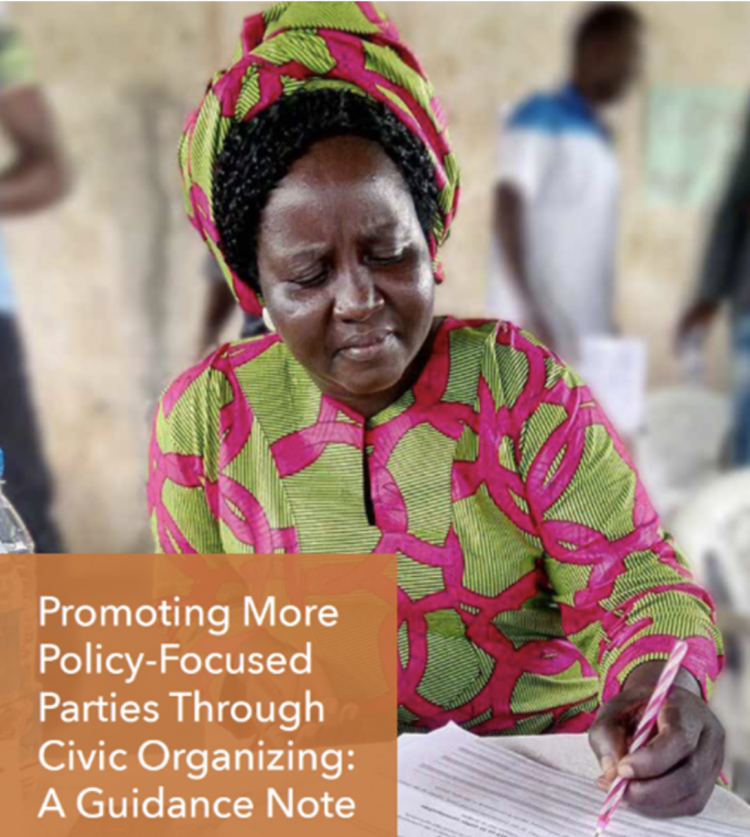Executive Summary: Promoting More Policy-Focused Parties Through Civic Organizing: A Guidance Note
The democracy support community implements a wide range of programming to promote more competitive and representative multiparty systems. Traditionally, these political party programs have focused on improving the capacity of party activists and political leaders to: conduct citizen outreach; represent different societal groups, including marginalized communities; develop and pursue public policy proposals; recruit and nominate candidates; compete in elections; and form governments. However, without strong incentives for change, greater organizational capacity alone rarely leads to more inclusive, responsive, and accountable political parties. As a result, assistance providers have started to supplement technical assistance to parties with interventions to incentivize more responsive, inclusive, and accountable parties.1 Although the theoretical foundations for these approaches appear strong, comparative lessons learned and best practices from practical experiences are limited. A deeper understanding of the efficacy of these approaches would strengthen the effectiveness of political party programming and inform future strategies.
This publication seeks to answer the following research question:
• Under what conditions have civic interventions incentivized more policy-focused parties?
